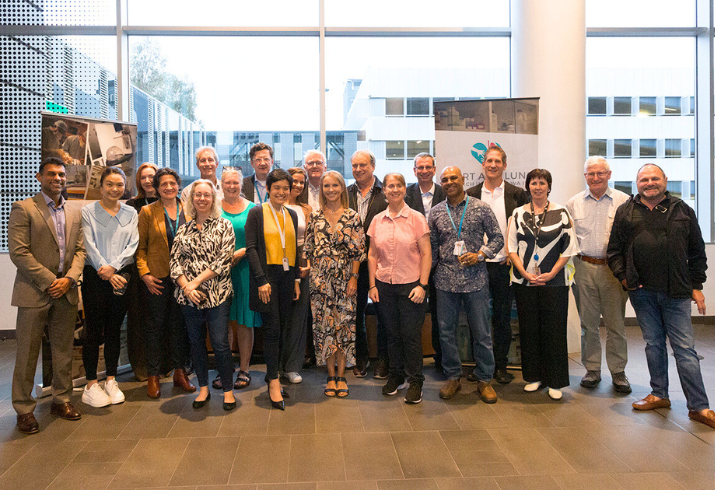FSH Thoracic Organ Transplant Service celebrates major milestones

This month our state cardiac and lung transplant service, based at Fiona Stanley Hospital (FSH), celebrates 30 years of heart and 20 years of lung transplantation.
In that time, the multidisciplinary team has seen medical innovations and changed the lives of hundreds of West Australians.
Over the weekend FSH hosted the WA Thoracic Organ Transplant Symposium providing an opportunity for experts in the field, including some of our own, to come together and share cutting-edge learnings on the future of transplantation.
Last Friday FSH also held a patient journey masterclass which looked at ethics and allied health services.
When the heart transplant service began in Perth 30 years ago, it meant patients no longer had to go to the eastern states for the procedure – and it was the same for lung recipients 10 years later.
FSH Director of Cardiothoracic Surgery, Professor Robert Larbalestier, performed WA’s first lung transplant and its first heart-lung transplant.
"We've been on the cutting edge of new technologies, new medications and new innovations in the overall management of people with end-stage heart and lung disease, and getting the ones that need transplantation through the transplant process successfully," he said.
"One of the big changes for organ transplantation is the rise of machine technology to perfuse organs and keep them viable for longer, so we can ship organs around the country safely and also so there is less damage to the organ when it comes out of the donor to the time it gets put into the recipient.
"We rely on all the members of the team - anaesthesia, nursing, clinical perfusionists, intensive care, social workers, psychologists - all these people play a vital role in supporting the patient and their family.
"I think we've delivered a quality service for the people of WA over the last 30 years, and we're very well structured to keep doing that for the years ahead."
The person to help do that will be Professor Uli Stock, who joined the team this year and has taken over as director to lead the service into the next decade.
Coincidentally, both the heart and lung transplant services sit at around 261 transplants to date.
We congratulate all the incredible staff who have been part of this service over the past three decades and we’re very proud to commemorate this milestone for the WA community.
Keep up to date with our news and achievements
Find out more on Facebook (external site) or LinkedIn (external site)

